Fighting against deforestation in the Amazon with the Kichwa people
EcuadorFighting against deforestation in the Amazon with the Kichwa people
Duration of the partnership
2018 -2020
Location
Ecuador
The project and its aims
The rate of Amazonian deforestation in Ecuador is among the highest in South America. The rate in Napo province, which straddles the Andes and the Amazon, exceeds the national average mainly because of demographic and land pressure and overexploitation of certain tree species that have high economic value.
Faced with the degradation of the forest environment, agricultural land and the living conditions of local populations, the Ishpingo association sought to help the indigenous Kichwa communities in the buffer zone of Llanganates and Colonso to manage their forest resources more sustainably by setting up agro-foresty models.
With the launch of the project in 2010, a 4ha experimental and demonstration farm has been introduced and 4 associations of fruit producers, comprising 112 farmers, have been set up. The first processing trials (making jam, pulp and essential oils) began in 2017 with a view to selling them on a fair trade basis in the twin aims of increasing the communities’ income and helping to stop predatory activities (the sale of wood and coal).
Since 2018, the Maisons du Monde Foundation has been supporting Ishpingo in establishing agroforestry models for forest resource regeneration in buffer zones.
Key project figures after three years of partnership (2018–2020):
- 232 farmers supported and trained in conventional and organic farming, as well as in agroforestry, out of a total of 700 supported by the association;
- 11 new community tree nurseries created;
- More than 53,000 trees planted in agroforestry systems or agroforests, i.e. almost 120 hectares reforested in a single area bordering the parks;
- 366 children from 4 schools educated on the issue of forest conservation (4 tree nurseries created in schools and between 500 and 2000 trees planted by children and their parents);
- A building constructed for processing fruits and leaves and producing Amazonian cinnamon essential oils;
- Developed equitable production, processing and marketing procedures for fruit derived from reforestation at the local level, and for processed products (jams and pulps) at the national and international level.
Targets for 2021–2023 :
- Support and train 250 additional farmers in managing their fruit plots and production processes;
- Create 15 new community tree nurseries to produce 60,000 fruit and timber trees;
- Educate roughly 1000 children from 9 schools, by creating a tree nursery and an arboretum containing at least 100 fruit and timber trees in each school;
- Finance the establishment of a project for the research and conservation of plant and animal species in Llanganates National Park, Ecuador, in partnership with the Ecuadorian Ministry of the Environment;
- Complete the construction of the building and equip it with machines in order to increase its production output;
- Consolidate the processing and marketing procedures for fruit derived from reforestation, in particular by opening up new local and national markets for selling processed products.
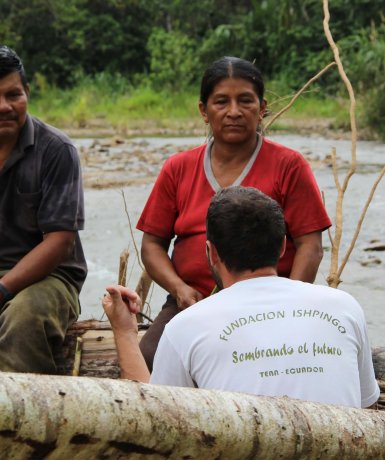
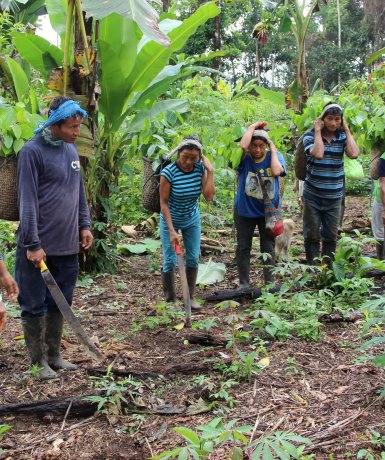
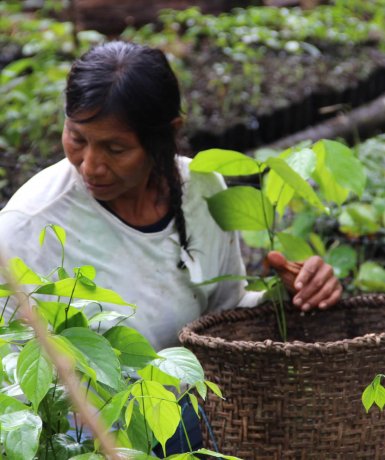
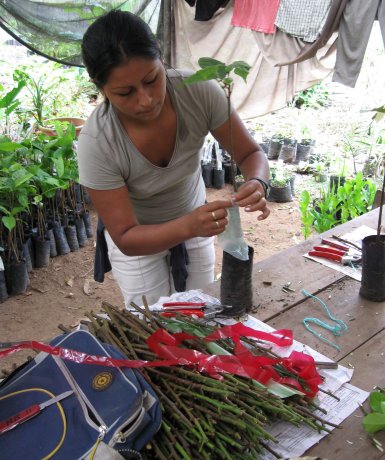
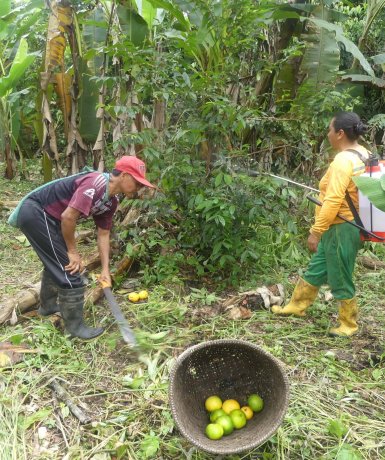
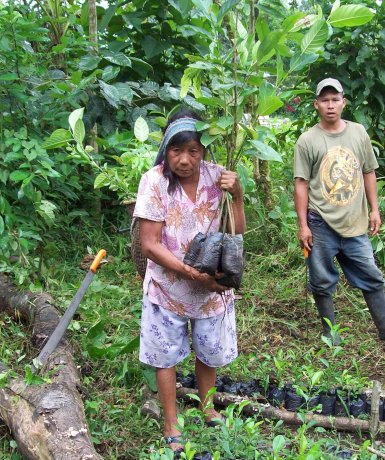
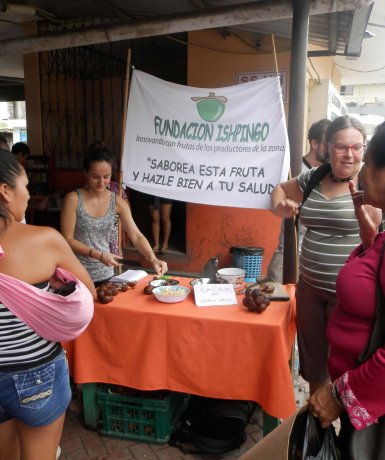
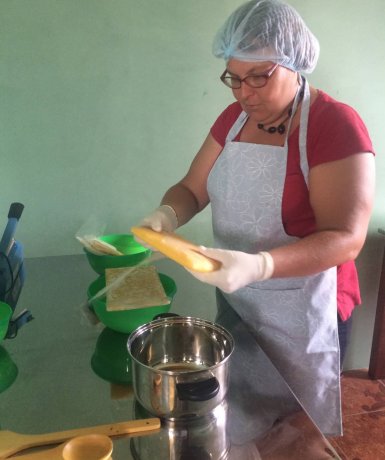
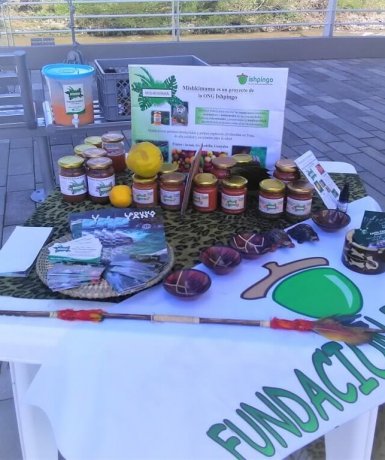
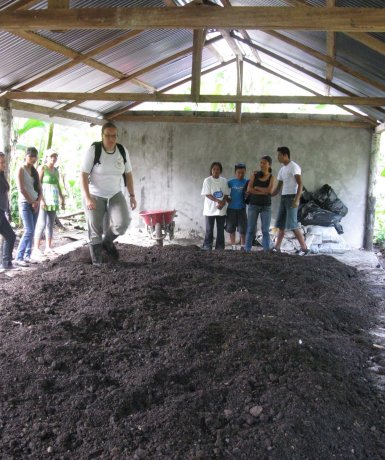
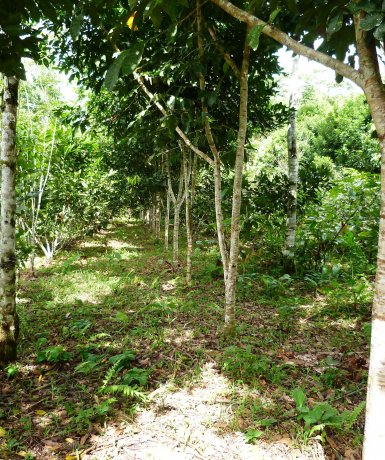
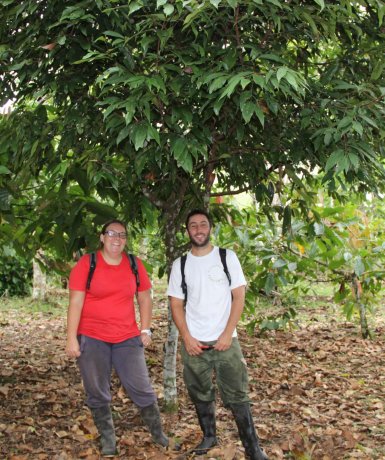
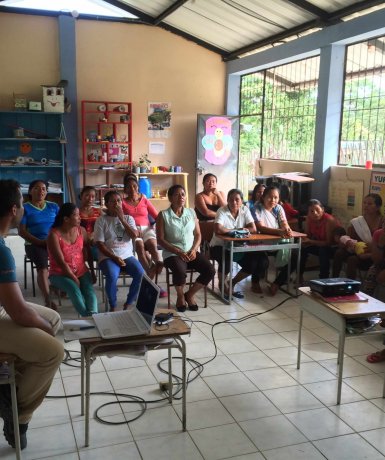
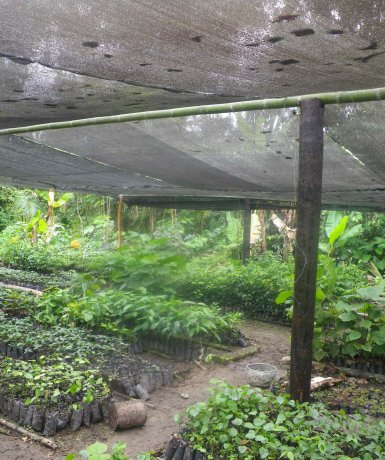
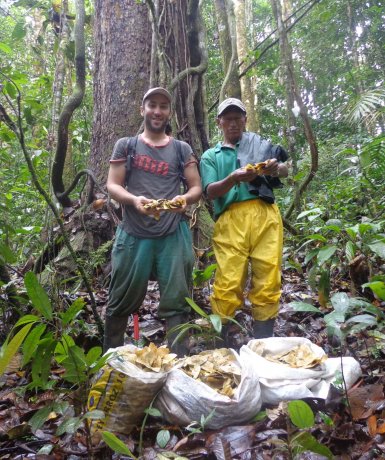
The beneficiaries
The direct beneficiaries of the project are the 112 Kichwa farmers who are members of one of the 4 producer associations and the 90 additional farmers involved in the project.
Other beneficiaries include the 250 children taught in schools about environmental issues that concern them directly.
Beneficiaries families (about 1,500) people are also affected. Lastly, the buyers and consumers of the organic products sold by Ishpingo, which come straight from beneficiary farms, also benefit from the project.
What makes the project special
Ishpingo offers appropriate solutions, involving local populations, to local environmental and socio-economic problems.
Ishpingo applies its 12 years of experience in the field and has a team permanently on-site and dedicated to the project, ensuring it is managed closely with the participating communities.
The project is run on a “for and by the beneficiaries” basis, allowing for the transfer of skills. The goal is to equip beneficiaries with know-how and build their capacities to safeguard their autonomy and ensure the sustainability of the project.
Project leader Ishpingo
Ishpingo is a French and Ecuadorian association established in 2005 with the aim of preserving natural resources while improving the living conditions of local indigenous populations.
Ishpingo works in 4 sectors or parishes (Talag, Pano, Misahualli and Atacapi) in the province of Napo and around the town of Tena with indigenous Kichwa communities for help them implement ways of suing natural resources rationally.
The agro-forestry reforestation project has already achieved the following results:
- 50 community-run tree nurseries
- 250,000 trees planted
- 500 beneficiary families
The association has also set up an experimental and demonstration farm, created a botanical garden in a high school, published two reforestation and fruit tree management and, lastly, helped form 4 fruit-producer associations.
Website


 Contact us
Contact us 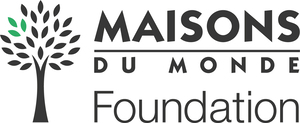

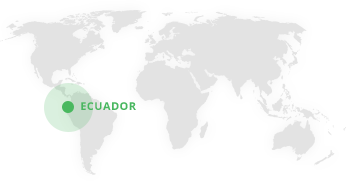


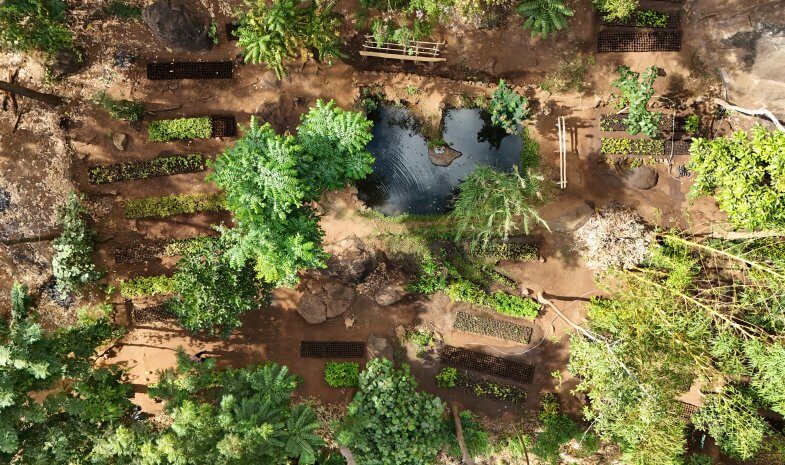
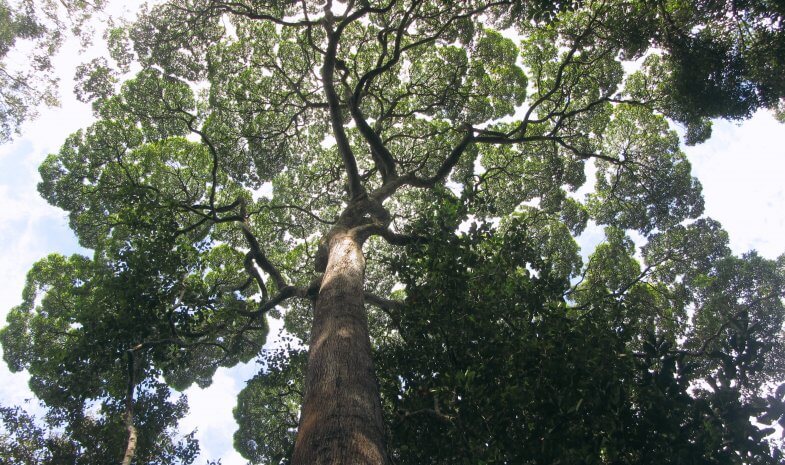
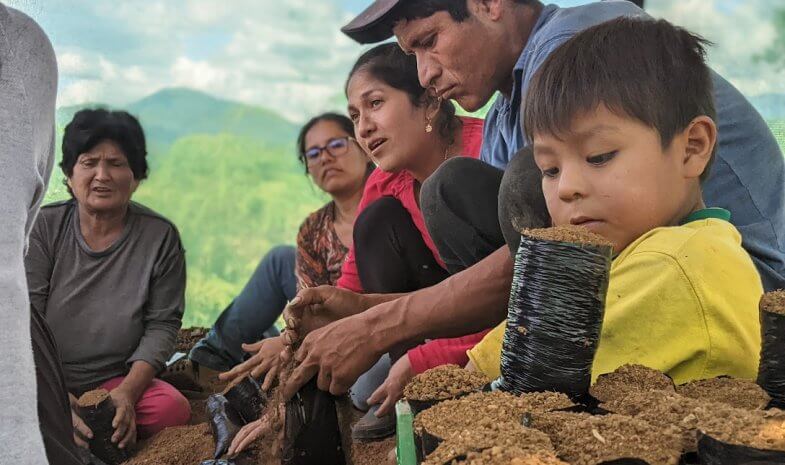
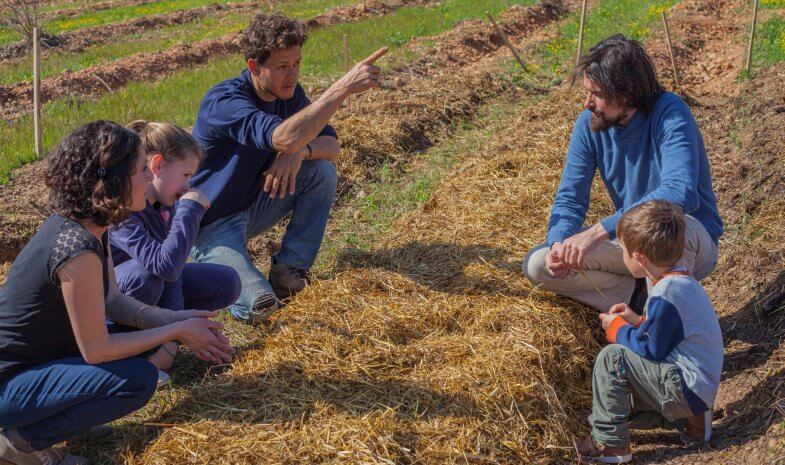

The reforestation project run by Ishpingo is the only thing that will ensure our children get to know certain tree species that are threatened by extinction and enables us to earn a dignified living from our land by using resources in a reasonable way and by selling our fruit products.
Delia Andi president of the Venecia community